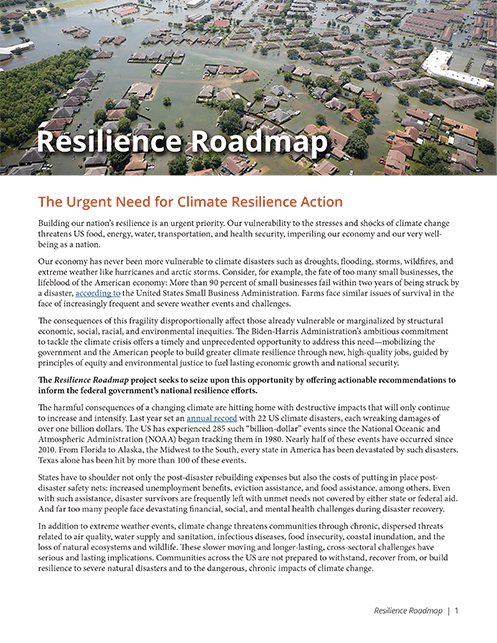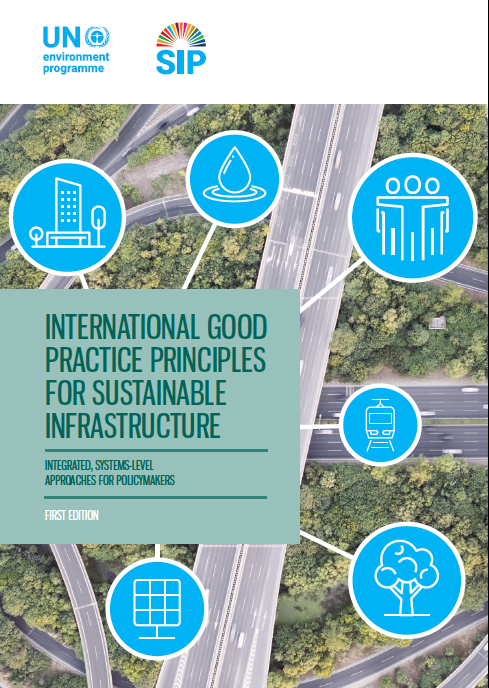Publications
Resilience Roadmap: The Urgent Need for Climate Resilience Action
Building our nation’s resilience is an urgent priority. Our vulnerability to the stresses and shocks of climate change threatens US food, energy, water, transportation, and health security, imperiling our economy and our very well-being as a nation. The Resilience Roadmap project seeks to offer actionable recommendations to inform the federal government’s national resilience efforts.
The Environmental Implications of China-Africa Resource-Financed Infrastructure Agreements: Lessons Learned from Ghana’s Sinohydro Agreement
This case study assesses the environmental and social risks of the aluminum industry projects linked to the Sinohydro Agreement concluded in 2018 between the Government of Ghana and the Sinohydro Corporation, a Chinese state-owned enterprise specializing in infrastructure development.
International Good Practice Principles for Sustainable Infrastructure
The International Good Practice Principles for Sustainable Infrastructure set out ten guiding principles that policymakers can follow to help integrate sustainability into infrastructure planning and delivery. They are focused on integrated approaches and systems-level interventions that governments can make to create an enabling environment for sustainable infrastructure.
Concept Note for Sustainable Infrastructure Community of Learners
To aid economic recovery following the COVID-19 pandemic, new funding is being pledged globally to support infrastructure construction. Such investments by themselves, however, will not necessarily promote sustainable development. An opportunity exists to significantly accelerate the adoption of sustainable infrastructure (SI) by taking advantage of the recent proliferation of capacity development programs and tools. One key to achieving this transformation is the establishment of a learning community among SI capacity resource providers and SI capacity resource clients.
Reducing Environmental Risks from Belt and Road Initiative Investments in Transportation Infrastructure
The proposed Belt and Road Initiative rail and road investments have stimulated concerns because of the history of significant negative environmental impacts from large-scale transportation projects across the globe. This paper studies environmental risks—direct and indirect—from Belt and Road Initiative transportation projects and the mitigation strategies and policies to address them. The paper concludes with a recommendation on how to take advantage of the scale of the Belt and Road Initiative to address these concerns in a way not typically available to stand-alone projects.





